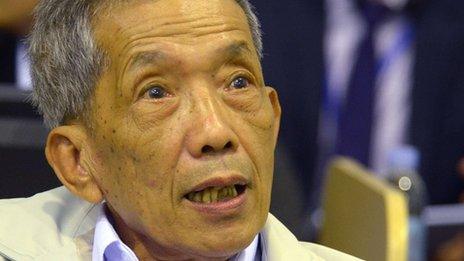Cambodia Khmer Rouge leader admits killing four Westerners
- Published
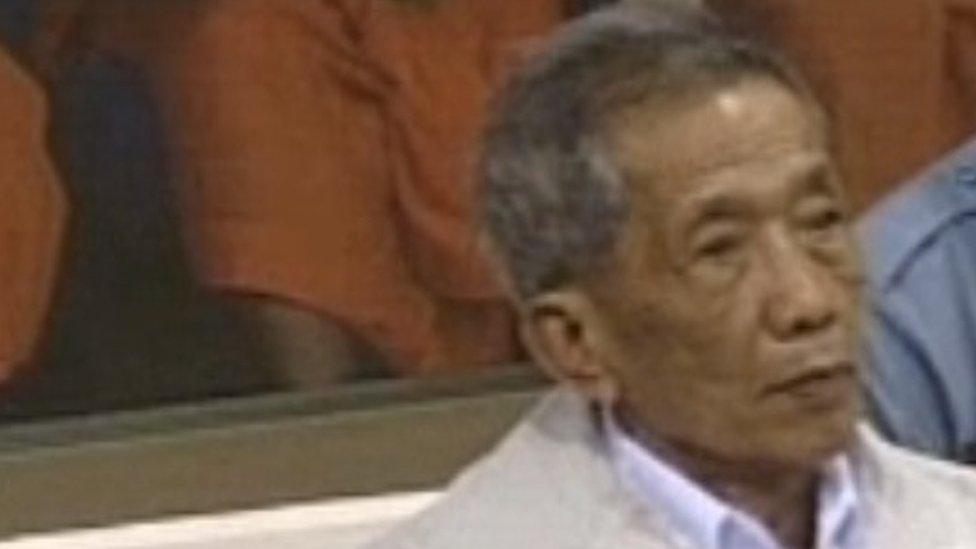
Comrade Duch said the four Westerners were "interrogated and smashed [as] per instructions"
A former leader of Cambodia's Khmer Rouge regime has admitted murdering four unidentified Westerners in the 1970s and burning their bodies.
Kaing Guek Eav, also known as Comrade Duch, said the four were killed because they had trespassed into Cambodia.
He said "Brother Number Two" Nuon Chea had personally instructed him to execute the four.
Duch is serving a life sentence for his role in running a notorious prison where thousands of inmates were killed.
He is now testifying against two deputies of Khmer Rouge leader Pol Pot.
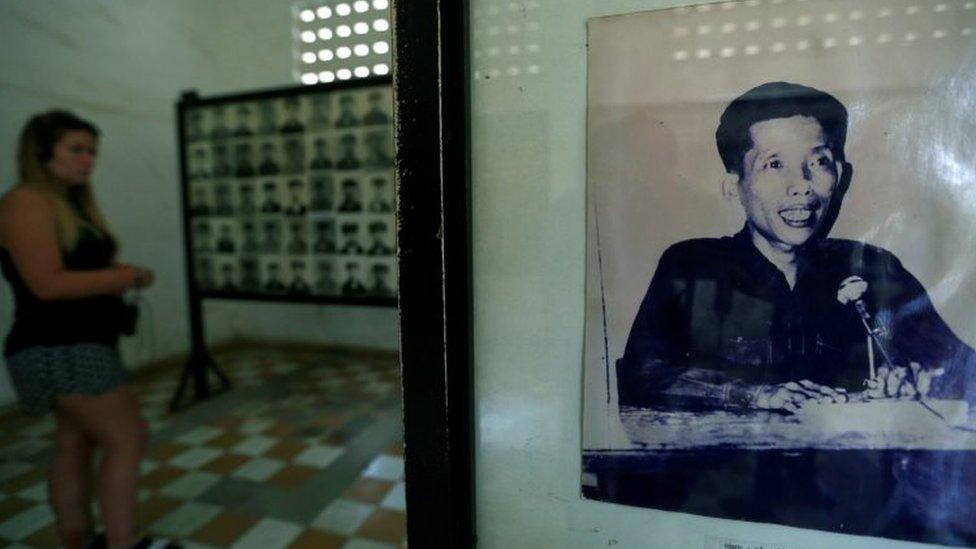
An image of Kaing Guek Eav, also known as Comrade Duch, is at the Genocide Museum in Phnom Penh
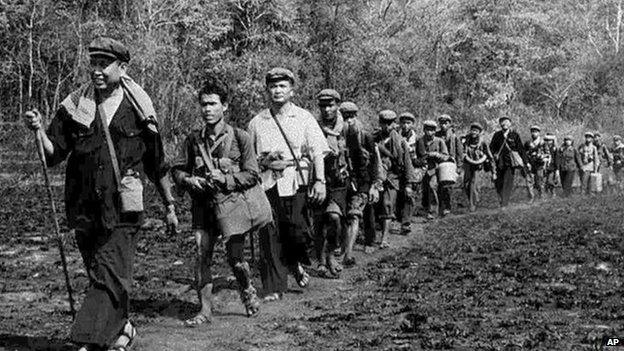
Khmer Rouge rule brought four years of starvation, torture and fear to Cambodians
A UN tribunal is trying to uncover the truth behind the "Killing Fields" atrocities, in which at least 1.8 million Cambodians were killed between 1975 and 1979.
In his evidence on Thursday, Duch said the four Westerners included two Americans.
All were killed at a school that became a torture centre, he said.
It is thought that at least 15,000 men, women and children deemed enemies of the regime were tortured and then executed while Duch was the commander of Tuol Sleng prison, which became part of the notorious "killing fields" outside Phnom Penh.
Duch said the foreigners - whose identities are unknown - were killed because they had trespassed into Cambodian waters.
"They were interrogated and smashed [as] per instructions," he told the court.
"They had to be burnt to ashes so there is no evidence that foreigners were smashed by us."
Duch has insisted that he was only following orders from senior Khmer Rouge leaders, including Nuon Chea, to execute prisoners.
Most Khmer Rouge victims died from starvation, torture, exhaustion or disease in labour camps, with many beaten to death during country-wide mass executions.
Nuon Chea and former head of state Khieu Samphan - both in their 80s and in poor health - are being prosecuted at the UN-backed court for war crimes and genocide. They were sentenced to life imprisonment in 2014 for crimes against humanity.
The complex case against them was divided to ensure they were punished while still alive. Two of their co-defendants, Ieng Sary and Ieng Thirith, are dead. Pol Pot himself died in 1998.
Correspondents say that there is little optimism the tribunal will be able to bring justice and closure to the time of genocide, because the decade-old process has been fraught with delays, political interference and funding problems.
- Published11 June 2015
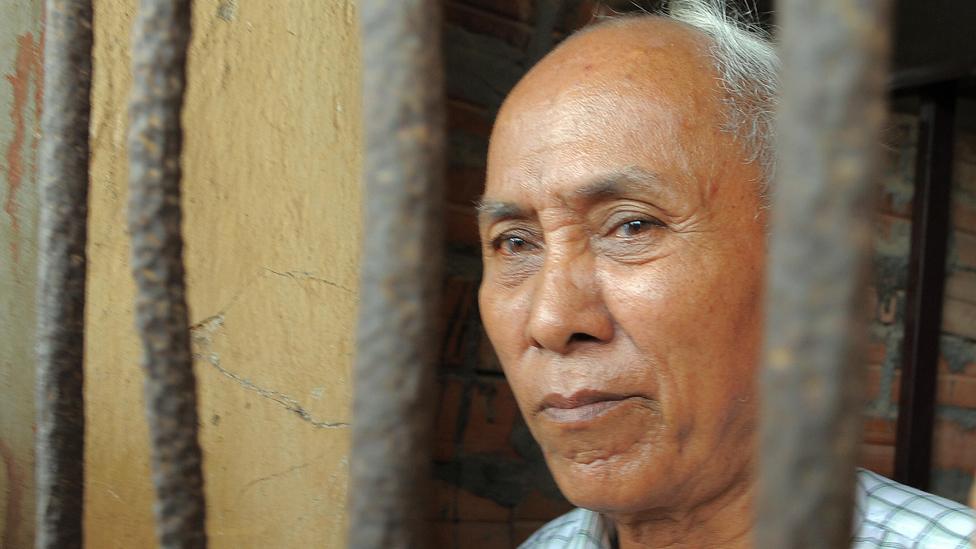
- Published7 August 2014
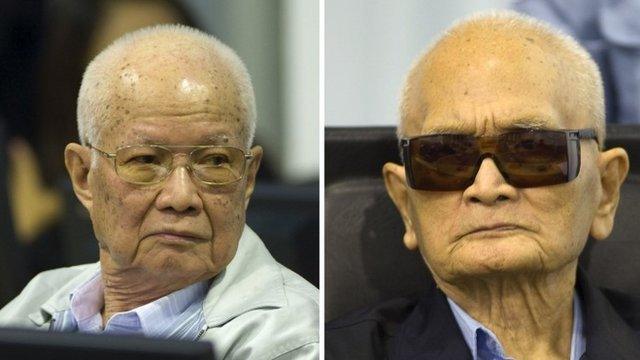
- Published7 August 2014
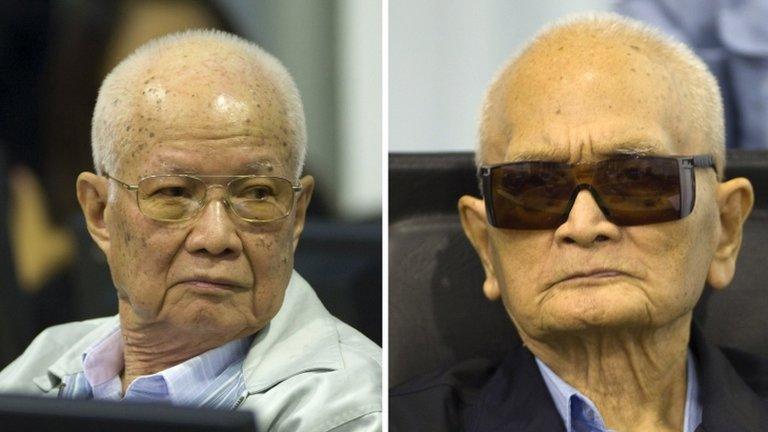
- Published30 July 2014
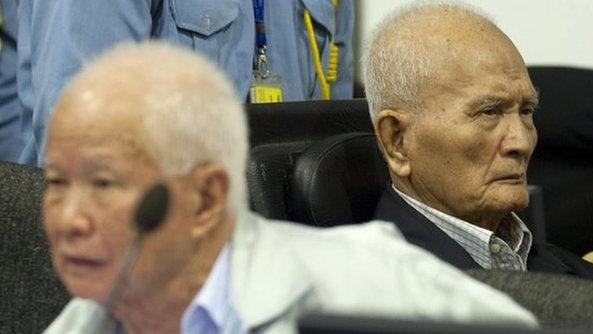
- Published7 August 2014
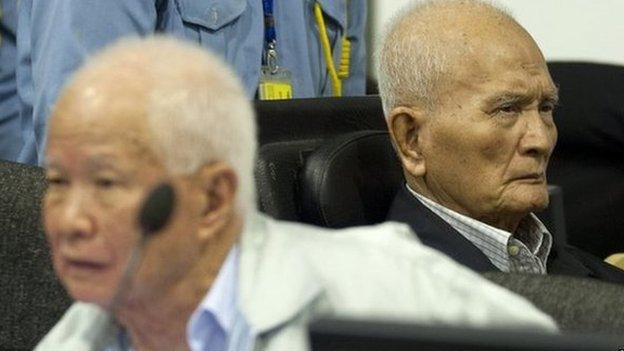
- Published3 February 2012
